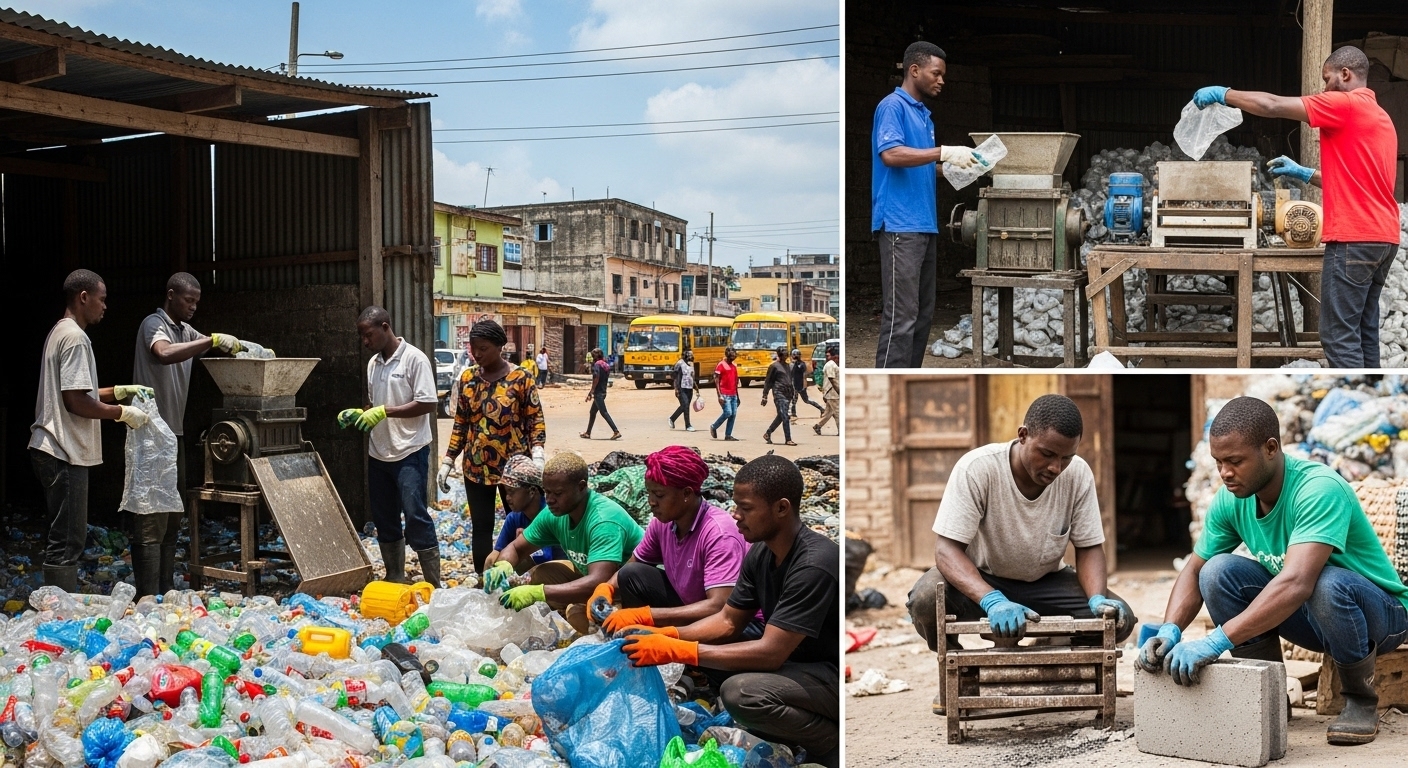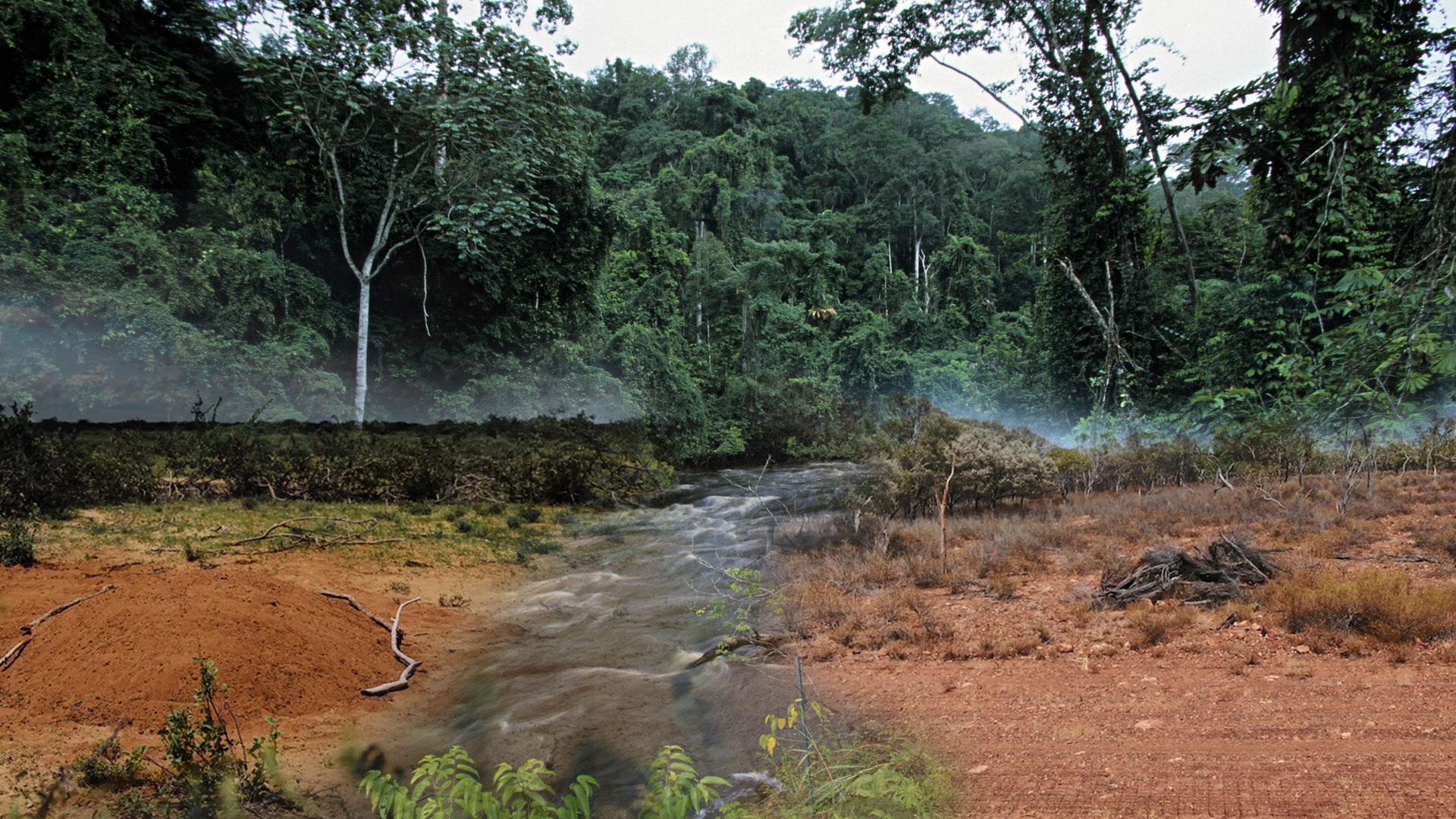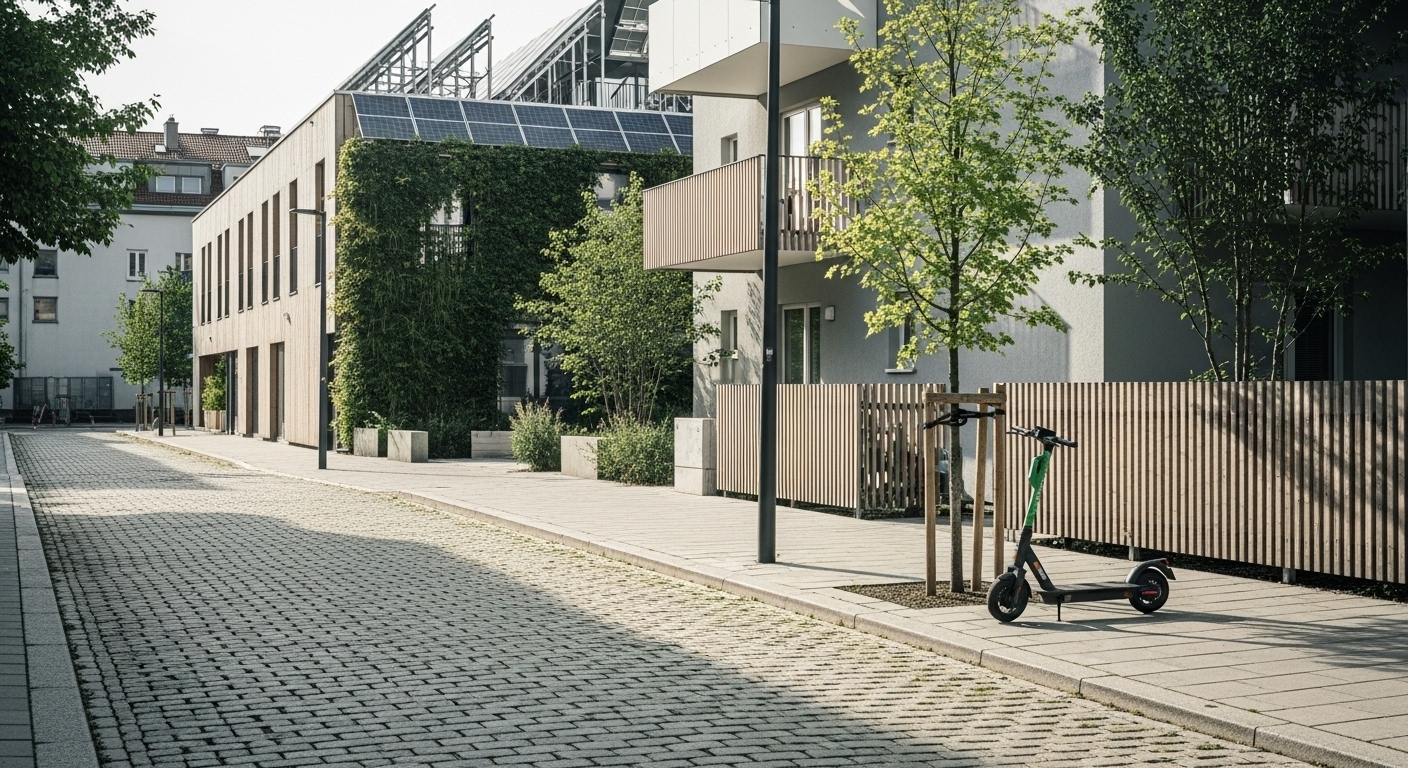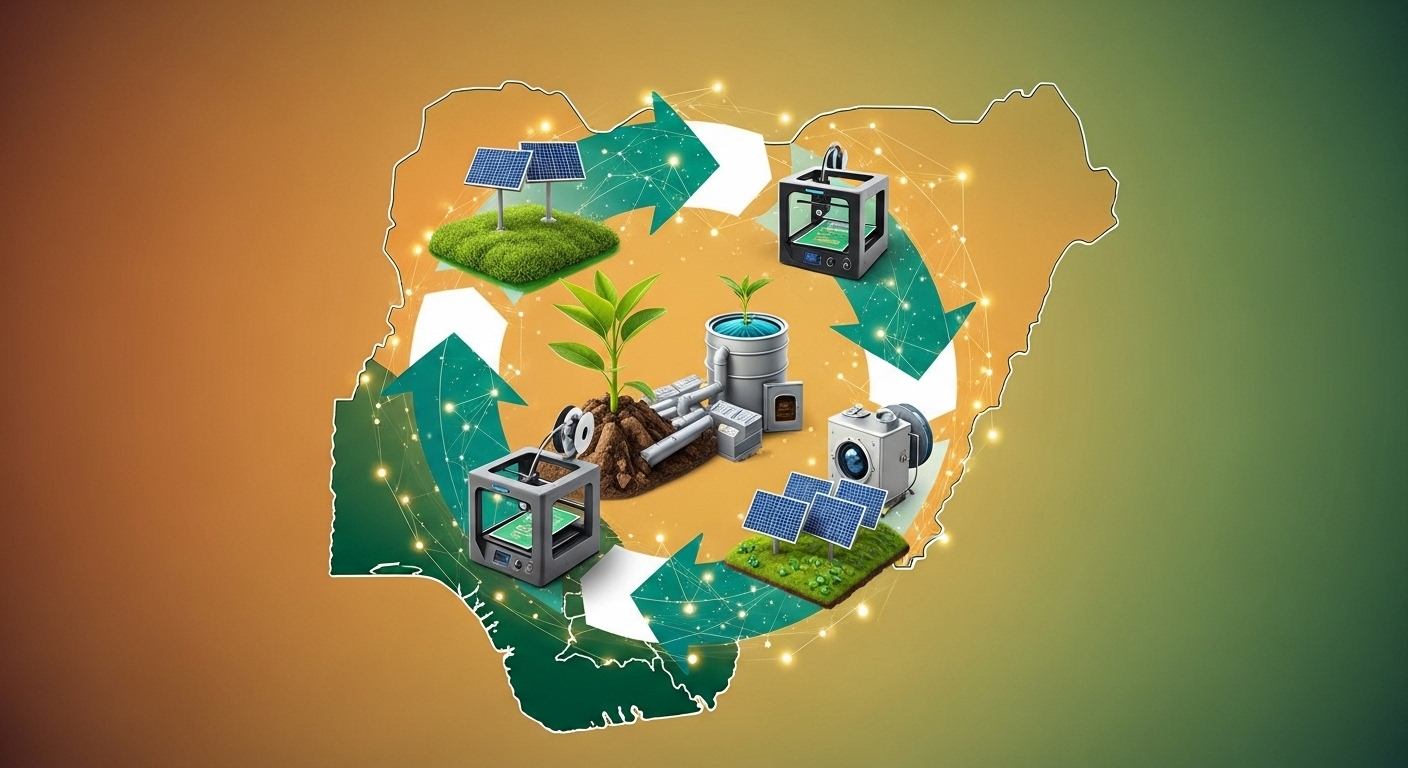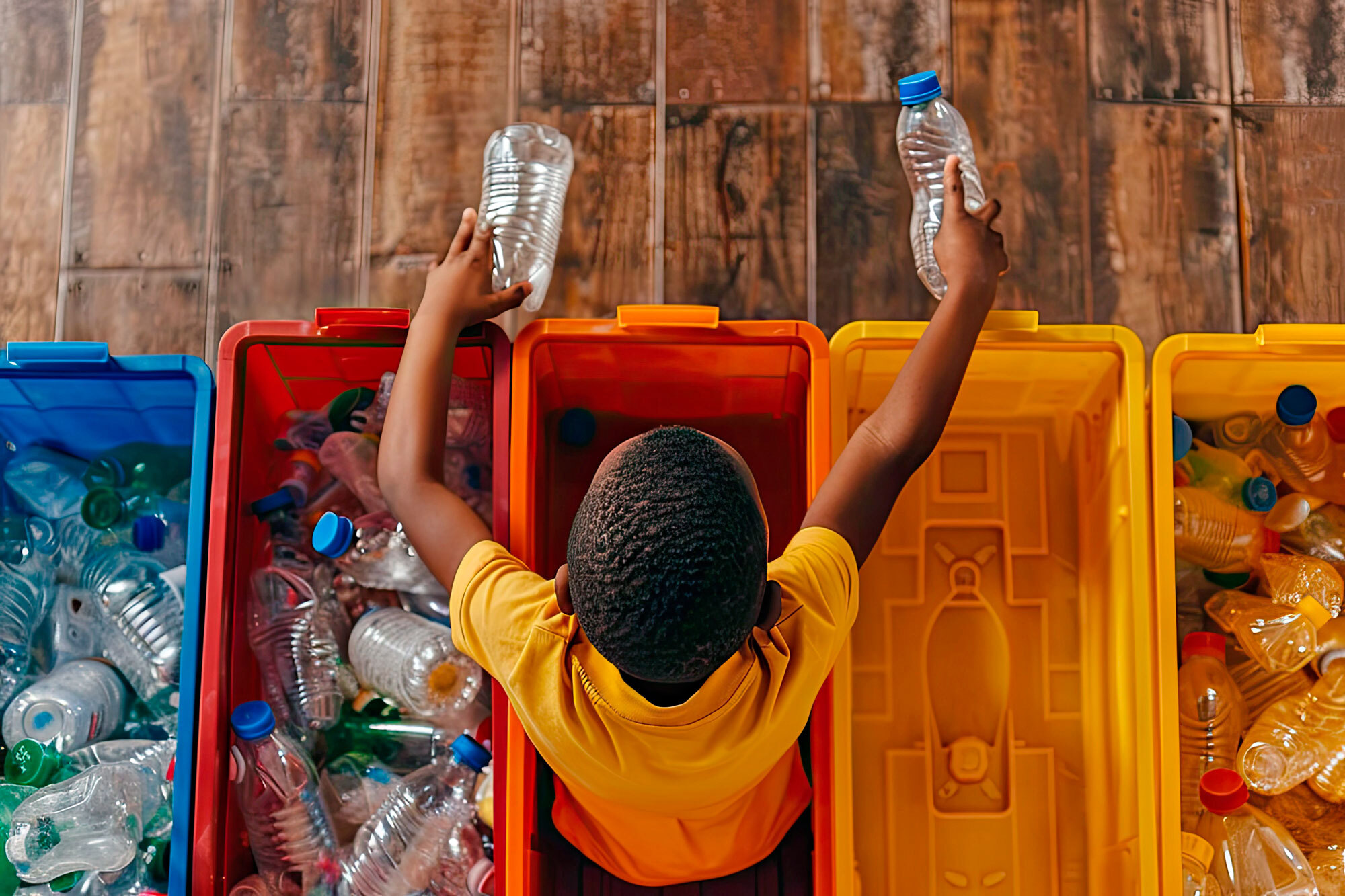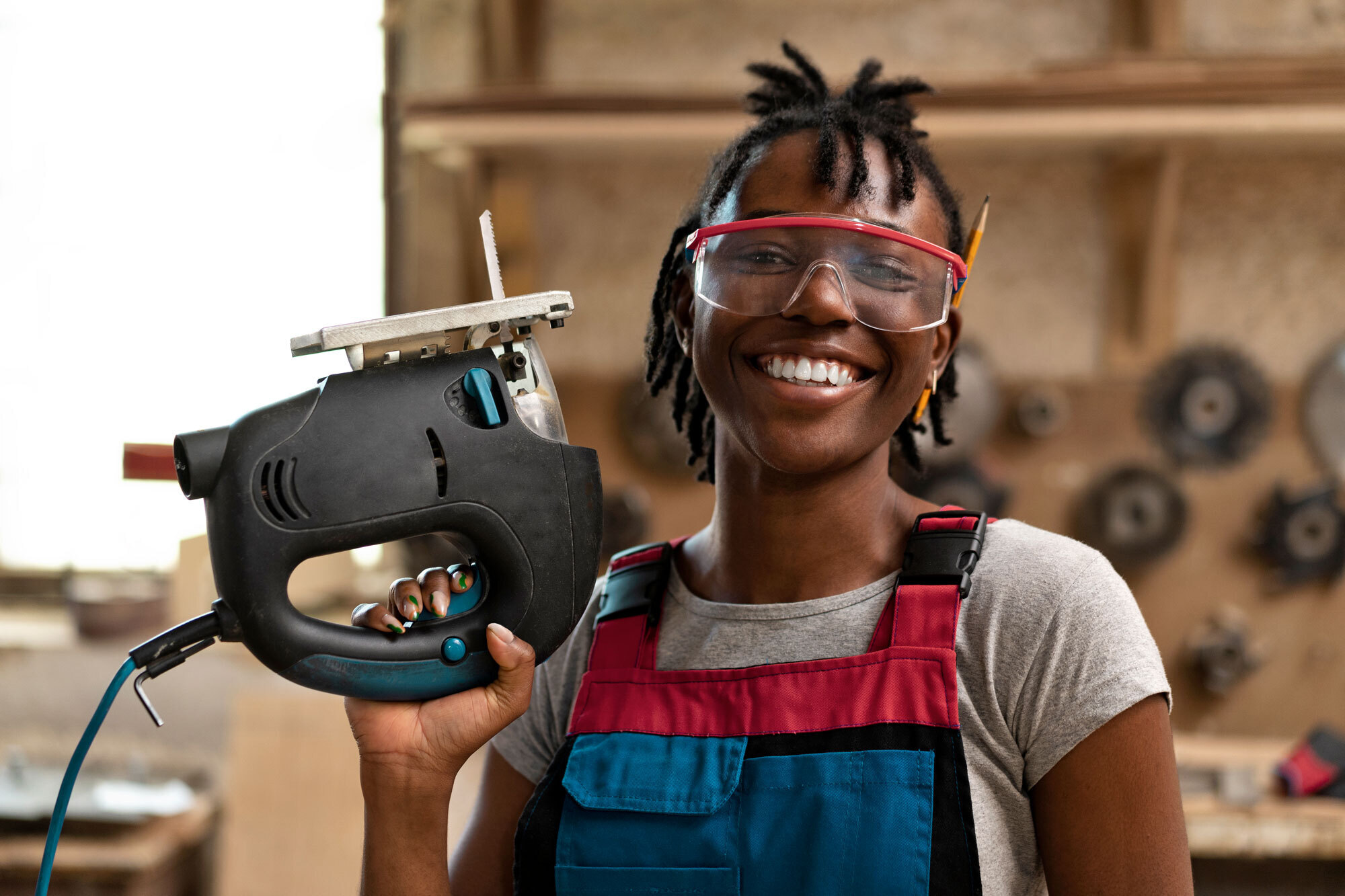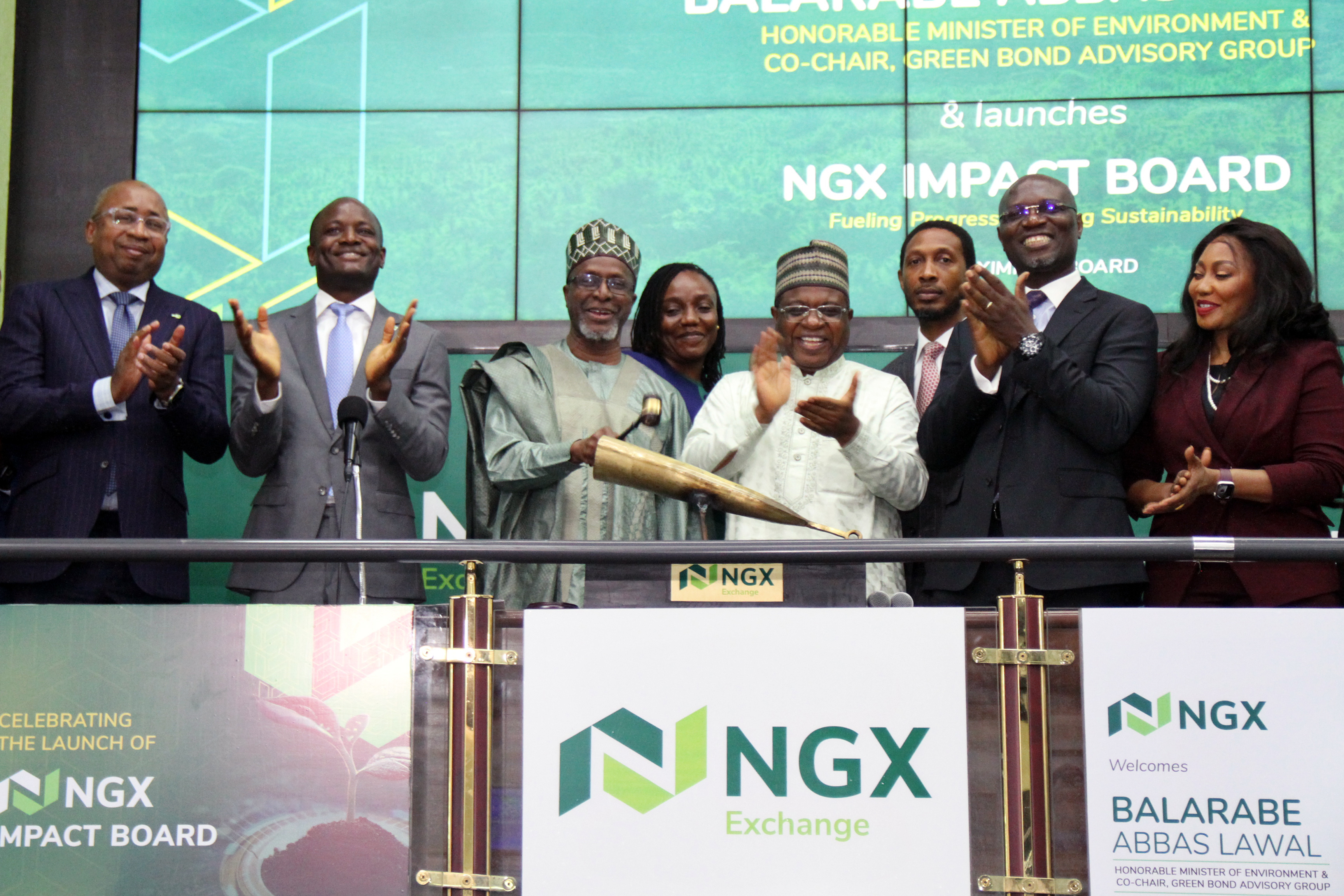With Lagos generating up to 3,800 tons of plastic waste daily, less than 12% recycled, the city faces an urgent pollution crisis.
Yet, through public-private partnerships, incentive-driven models, and digital innovations like PAKAM, Lagos is poised to transform plastic waste into a $200 million circular economy, creating over 10,000 jobs for women and youth, and setting new standards for inclusive sector growth.
Lagos Reclaims Waste, Reimagines Growth: Building a Circular Economy for All
According to the report published by the Nigerian Climate Innovation Centre (NCIC), Lagos State, Africa's economic powerhouse, is rapidly steering toward a future defined by resource efficiency and inclusive growth.
Overflowing landfills, clogged waterways, and health risks caused by plastic pollution reveal the stark consequences of decades of unmanaged waste. But the rise of circular economy solutions is rewriting the narrative for the state's 21 million residents.
By harnessing digital platforms, incentivising communities, and supporting women and youth, Lagos is not only reclaiming waste but also creating wealth and jobs.
This new recycling ecosystem, powered by innovation and collaboration, is primed to bridge gender gaps, stimulate entrepreneurship, and drive sustainable urban development.
Plastic Pollution Crisis in Lagos
With over 21 million people, Lagos produces between 2,250–3,800 tons of plastic waste every single day. Less than 12% is recycled, posing grave risks to the environment and public health.
The time to mobilise all actors in the plastic recycling value chain, and to boost public awareness, has never been more critical.
| Indicator | Value (Daily) | Population | % Recycled | Main Threats |
|---|---|---|---|---|
| Plastic Waste | 2,250–3,800 tons | 21 million | <12% | Floods, pollution |
Value Chain Opportunities & Gaps
The plastic recycling sector in Lagos is valued at $200 Million annually, with the potential to create over 10,000 jobs for women and youth by bridging gaps in logistics, finance, and gender equity.
The informal sector's collectors, aggregators, and pickers are the backbone of this growth, yet face limited support and resources.
| Segment | Market Value | Jobs Potential | Main Gaps | Informal Sector Role |
|---|---|---|---|---|
| Recycling VC | $200M | 10,000+ | Finance, logistics, gender equity | Essential |
Circular Economy Gains: Jobs & Innovation
Circular models, such as reward-based initiatives (Trash for Cash) and digital apps (PAKAM), drive community engagement and grow household incomes.
Expanding these platforms and formalising linkages between informal and formal players can unleash the full $200M market potential and deliver broad economic and social benefits.
| Model/Initiative | Impact | Technology | Income Creation | Gender Inclusion |
|---|---|---|---|---|
| Trash for Cash | Rewards households | Mobile app (PAKAM) | Direct & indirect | Women/youth focus |
Policy, Collaboration, and Equity Moves
The progress of Lagos rests on government, private sector, and community partnerships. Recent interventions, such as the creation of over 30,000 jobs, new regulations, and active engagement of female leadership, underscore the power of collaboration.
Yet, scaling public-private efforts and enforcing supportive policies are critical to sector growth.
| Sector Action | Recent Stats | Policy Moves | Collaboration Needs |
|---|---|---|---|
| Public-Private | Over 30,000 jobs | Draft regulations, SDGs | LG, State, private support |
Gender Equity
- CEO leadership
- Incentive programs
- Union, cooperatives
Sustaining Circularity and Impact
Long-term success requires adopting circular solutions, scaling operational capacity, and systematically monitoring gender equity and KPIs.
With the involvement of FBRA, LAWMA, LASEPA, and SEDIN, Lagos leverages ongoing pilot schemes and SDG-aligned targets for inclusive sector expansion and resilient urban growth.
| Monitoring Body | Pilot Schemes | KPI Focus | SDG Alignment | Recommendation |
|---|---|---|---|---|
| FBRA, LAWMA | Incentive models | Jobs, volumes | Gender, jobs | Formalise sector, monitor, incentivise innovation |
Data Table: AIDAP Framework
| Section | Title | Key Message | Data/Insight | Recommendation |
|---|---|---|---|---|
| Attention | Plastic Pollution Crisis in Lagos | Huge plastic waste threatens the environment and health | 2,250–3,800 tons/day; <12% recycled | Mobilise all actors, boost awareness |
| Interest | Value Chain Opportunities & Gaps | $200M market untapped; gaps in logistics, gender | 10,000 jobs for women/youth; informal sector | Invest in transport, finance, and policies |
| Desire | Circular Economy Gains: Jobs & Innovation | Incentives, apps, models drive jobs & growth | Trash for Cash, PAKAM, $200M market | Expand platforms, link informal, formal actors |
| Action | Policy, Collaboration, and Equity Moves | Multisector action, equity, policy reforms | 30,000+ jobs, new CEO leadership, regulations | Scale public-private partnerships |
| Priority | Sustaining Circularity and Impact | Scale circular solutions, track KPIs, gender equity | FBRA, LAWMA, LASEPA, SEDIN support; SDGs | Monitor, formalize, incentivize innovation |

